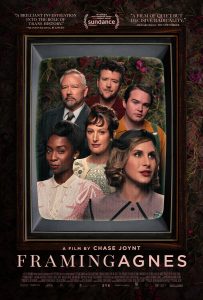
“Framing Agnes”
(Canada/USA)
Letterboxd (4/5), Imdb.com (8/10)
Anyone who believes that he/she has a good handle on understanding transgender culture and sensibilities is bound to have his/her eyes thrust wide open by this thoughtful, inventive documentary from writer-director Chase Joynt. In creating this offering, the filmmaker seeks to enliven the little-known life experiences of mid-20th Century transgender pioneers like the title character and how they blazed trails for those who followed, particularly in terms of their challenges related to acceptance and often having to trade one set of unfulfilling circumstances for another, in both cases as a result of society’s rigid gender role expectations. The film also addresses how these questions were often compounded by other significant considerations, especially for minorities, such as the pervasive and persistent existence of racial inequities in the days before the Civil Rights Movement, conditions that rendered these transgender individuals virtually invisible. And the picture also shows how many of those issues have lingered to this day, with change only now beginning to emerge in some regards. This is all accomplished through an intriguing juxtaposition of the observations of contemporary transgender historians and re-created actor-portrayed interviews of community pioneers by a fictional TV talk show host who’s based on UCLA sociologist Harold Garfinkel, an early researcher of this subject. Both of the foregoing elements are further intercut with interviews of the transgender performers who portray these community trailblazers, dialogues in which they provide their insights into the characters they play, as well as descriptions of events from their own life experiences. This mix of narrative components makes for an intriguing, enlightening watch, one that moves along at a refreshingly brisk pace thanks to its astute observations and economical 1:15.00 runtime. To be honest, though, as informative as the talk show sequences are (presented in a 1950-ish black-and-white format a la The Mike Wallace Interview), the use of this storytelling device feels somewhat contrived (if not more than a little precious), despite the depth of the revelations to come out of them. Still, there’s ample food for thought packed into this 2022 Sundance Film Festival award winner, much of it illuminating about both this diverse community and the notion of gender itself, regardless of one’s leanings.




Leave A Comment